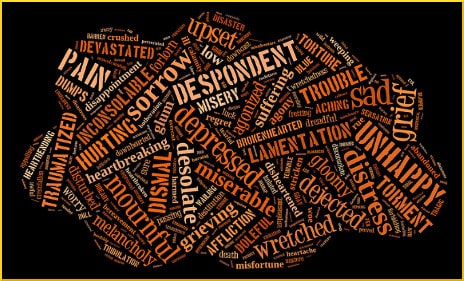
One of the most important things that Dr. Pretlow has learned about problem eating is that it is intended to end pain. All over the globe, people self-medicate by stuffing themselves with enormous wads of something that vaguely resembles food. Whether it is called a behavioral addiction or a bad habit, problem eating is a maladaptive response to pain, helplessly enacted by people who don’t know a better way to cope.
Many children just don’t seem to have the ability to bounce back from the inevitable disappointments and injuries of life. From the earliest development stages of his W8Loss2Go smartphone application, Dr. Pretlow has recognized that coping skills are sadly lacking. His presentation to the American Academy of Pediatrics included these words:
Self-esteem and coping skills augmentation, along with stress management techniques, peer/mentor support, and motivational tools are the necessary skills needed for recovery from food addiction and resulting obesity in children.
In describing the vicious circles that too often trap people, Dr. Pretlow notes that, when things get really bad, a person is likely to eat to cope with obesity itself. Imagine trying to solve a problem by doing the exact thing that makes the problem worse. Could a vicious circle be any more diabolical? He says a person needs to…
[…] write a plan for breaking each Vicious Circle, such as seeking comfort and stress relief from other things besides food, like pets, volunteer work, and professional counseling.
A reality of life is that not everyone can afford professional counseling, and this is where a company like Smiling Mind enters the scene. It describes mindfulness as “modern meditation” and wants to make mindfulness training available in elementary schools, where it is now being tested.
Spokesperson Dr. Richard Chambers, who is a clinical psychologist, says the benefit is that children become more focused and resilient. For a fuller sense of that second word, we consult the venerable Merriam-Webster dictionary, which describes the word “resilient” in a following way:
— able to become strong, healthy, or successful again after something bad happens
— able to return to an original shape after being pulled, stretched, pressed, bent, etc.
— capable of withstanding shock without permanent deformation or rupture
— tending to recover from or adjust easily to misfortune or change
When something bad happens; when a person’s life or self is pulled, stretched, pressed, bent; when misfortune or change or shock occur, the result is usually pain. It might be physical, emotional, or both. In the overwhelming majority of cases, pain can be temporarily assuaged by sweet treats.
But it doesn’t have to be this way. Mindfulness can be a tremendous coping skill for children and parents. The Smiling Mind literature says:
Being fully awake in each moment of life is something that everyone benefits from, and children tend to exhibit this quality quite naturally. Young children can be taught to meditate, starting with small amounts and leveraging activities that they already enjoy such as exploring new things and playing. However even better, is for parents to embody mindfulness with their kids.
The opposite of mindfulness is the sleep-like state of “operating on autopilot” which is, incidentally, when an awful lot of mindless, automatic, emotional eating is done.
Your responses and feedback are welcome!
Source: “An iPhone App Intervention for Childhood Obesity, Based on the Substance Dependence (Addiction) Model,” Weigh2Rock.com
Source: “Mindfulness made easy,” KidsMatter.edu, undated
Photo credit: GollyGforce – Living My Worst Nightmare via Visualhunt/CC BY

 FAQs and Media Requests:
FAQs and Media Requests: 











